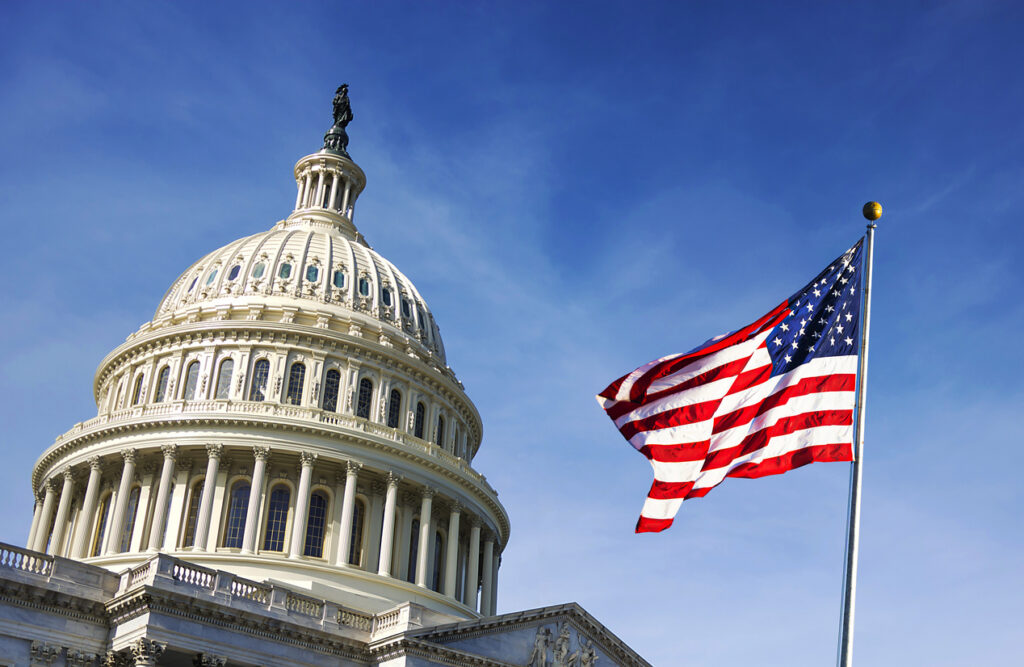Question:
Why are Catholic churches muzzled while Protestant churches freely exercise political speech through endorsements, hosting candidates, etc.? This does not seem equitable. (Hilliard, Ohio)
Answer:
The laws are the same for all churches. The ban on political campaign activity by charities and churches has been in effect for more than half a century.
It was created in 1954 when Congress approved an amendment proposed by Sen. Lyndon B. Johnson that prohibited tax-exempt entities (technically 501(c)(3) organizations, which include charities and churches) from engaging in any political campaign activity. (In 2000, in a case called Branch Ministries v. Rossotti, the U.S. Court of Appeals upheld the legality of that ban.)
The U.S. Conference of Catholic Bishops periodically reminds churches and Church leaders of the implications of that ban. In a website article called “Do’s and Don’ts Guidelines During Election Season,” the USCCB lists among activities to avoid: “Do not endorse or oppose candidates, political parties or groups of candidates, or take any action that could reasonably be construed as endorsement or opposition.” The bishops’ conference also warns parishes that they should not “invite only selected candidates to address your Church-sponsored group.”
While churches are prohibited from endorsing candidates, this does not prevent them from speaking out on moral issues, even if these happen to be interwoven with political topics — issues like care for the poor, religious freedom, human life and migration.
At times, I have seen certain religious leaders try to differentiate, claiming that in endorsing a particular candidate, they were simply expressing a personal preference and not speaking as a Church representative. But that is dangerous turf and could well be “reasonably construed” as institutional endorsement.
What our letter writer mentions does in fact happen, and it may be due — in part, at least — to the fact that Protestant and evangelical churches sometimes lack the central oversight that guides Catholic parishes.
Distancing from political endorsements is preferred by over 50% of Catholics — and that has been documented in a 2014 study by the Pew Forum on Religion and Public Life. And interestingly, Canon 287 of the Church’s Code of Canon Law says that clerics “are always to foster the peace and harmony based on justice” but “are not to have an active part in political parties.”
Question:
This year during Holy Week, I was particularly troubled by the traditional teaching that Christ had to die that painful death to atone for our sins. This seems to me to contradict Jesus’ identity as a loving savior. Upon Googling the topic, I came across a column you did several years ago that seemed to give a straightforward and common-sense answer.
(I also benefited from reading a magazine article by the theologian Elizabeth Johnson, which explained that St. Anselm’s 11th-century “satisfaction theology” was a product of the feudal society of his time; if you broke a law in those days, you had to pay something back to the feudal lord to restore order to society.)
Do you have any further thoughts which could help comfort me on this issue? (Murphy, North Carolina)
Answer:
I couldn’t agree more with your discomfort at the view of St. Anselm. Anselm believed that the sacrificial death of Jesus was necessary to restore humanity’s communion with the Father, that the blood of Jesus was “payment” to God for human sin.
This theory, though, has been challenged by other theologians over the centuries. In fact, one of Anselm’s contemporaries, the scholar Peter Abelard, insisted that Christ’s death on the cross had been an act of love, not payment.
And even 700 years before that, St. Augustine had indicated his reservations about such a theory; Augustine asked, in his “De Trinitate,” “Is it necessary to think that being God, the Father was angry with us, saw his son die for us and thus abated his anger against us?”
St. Thomas Aquinas, too, criticized Anselm’s theory, saying that it took away God’s freedom to be merciful. Theologians in our own day have also found difficulty with Anselm’s view.
In the article you mention, Elizabeth Johnson speaks persuasively; she reminds us that, in the biblical story of the prodigal son, the father wouldn’t even let his son apologize, saying instead, “It doesn’t matter now. You’re home. Let’s have a party.”
Cardinal Joseph Ratzinger, the future Pope Benedict XVI, wrote in his “Introduction to Christianity” that Anselm’s attempt to blend the divine and human legal systems can “make the image of God appear in a sinister light.” And so — thankfully — none of us is compelled to believe that God deliberately willed the suffering of his Son.

